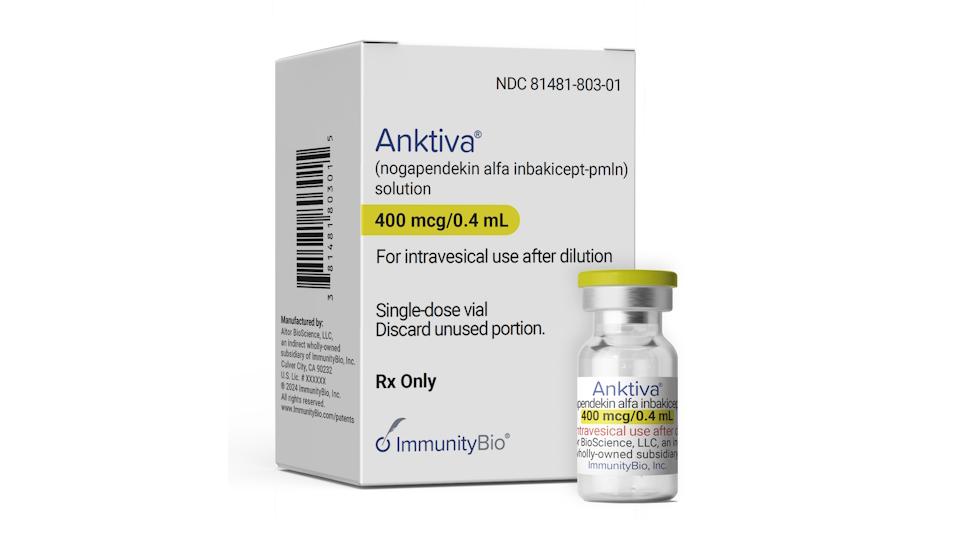ESMO: Immunotherapy combos extend lives in bladder cancer

In the last decade, immunotherapy with PD-1/PD-L1 inhibitors has transformed the treatment of relapsed urothelial carcinoma (UC), the most common form of bladder cancer. Now, new data suggests new combinations could extend its benefit in previously untreated patients.
At ESMO, oncologists got their first look at the results of the EV-302/KEYNOTE-A39 trial of MSD’s PD-1 inhibitor Keytruda (pembrolizumab) and Seagen and Astellas’ Nectin-4-targeting ADC Padcev (enfortumab vedotin), which showed that the duo reduced the risk of death by 53% compared to chemotherapy when used as a first-line treatment for locally advanced or metastatic UC.
Patients treated with the combination had a greater than 15-month improvement in overall survival (OS), at 31.5 months compared to 16.1 months with chemo, while median progression-free survival doubled to 12.5 months from 6.3 months.
“The results of this study have been long awaited, as for more than two decades platinum-based chemotherapy has been the standard of care,” commented Dr Andrea Apolo from the National Institutes of Health, ESMO’s discussant for the study. “It is very exciting that we have now identified a combination of treatments that is superior to chemotherapy in terms of OS.”
Secondary endpoints backed up the main findings, including a 68% objective response rate with Keytruda/Padcev versus 44% for chemo, with complete responses seen in 29.1% and 12.5% of patients, respectively.
The drugmakers say they will file for approval of the combination based on the data. The Keytruda/Padcev combination already has accelerated approval from the FDA as a first-line option for advanced UC, but currently only for patients who are ineligible for chemo, and the new data will also serve as a confirmatory trial for that labelling.
Astellas has previously estimated there are approximately 8,000 to 9,000 patients in the US with UC who are not eligible for cisplatin-based chemo, while around 82,000 patients are diagnosed with the cancer every year.
“The results of this phase 3 trial are unlike any we have seen so far and open a new chapter in advanced urothelial cancer treatment,” said lead investigator Thomas Powles of Barts Cancer Centre in the UK.
“This presents a great opportunity for this medicine to make a meaningful impact on advanced urothelial cancer patients, who face an urgent need for new therapies.”
Chemo-immunotherapy comes good
There was more good news for advanced UC patients at ESMO from the CheckMate 901, which looked at the combination of Bristol-Myers Squibb’s PD-1 inhibitor Opdivo (nivolumab) with chemo as a first-line therapy.
The results showed that adding the immunotherapy significantly prolonged median OS to 21.7 months from 18.9 months, as well as extending PFS to 7.9 months from 7.6 months, which were both statistically significant differences. The objective response rates were 57.6% with the combination and 43.1% with chemotherapy alone, with corresponding complete response rates of 21.7% and 11.8%.
“This is the first study to show an improvement in OS using a combination of chemotherapy and immunotherapy in patients with metastatic bladder cancer,” said Dr Apolo, who noted that earlier trials of this approach involving Keytruda and Roche’s PD-L1 inhibitor Tecentriq (atezolizumab) were unable to improve on chemo alone.
She said that in the failed KEYNOTE-361 study of Keytruda and Tecentriq’s IMvigor130 trial patients were treated with either cisplatin or carboplatin, while in CheckMate 901 all patients were treated with cisplatin.
“It may therefore be that advanced bladder cancer is particularly sensitive to the specific combination of nivolumab and cisplatin,” suggested Dr Apolo.
Overall, she said that the data from the two studies suggests that Keytruda/Padcev “will clearly become the new standard of cancer care for this cohort of patients,” though the increased cost of the combined therapy could be an issue.
Another trial to watch in this setting in the coming months is the NILE study investigating the combination of AstraZeneca’s PD-L1 drug Imfinzi (durvalumab) with chemo, Imfinzi with AZ’s CTLA4 inhibitor Imjudo (tremelimumab) and chemo, or chemo alone, said Apolo. Results from that are due next year.













